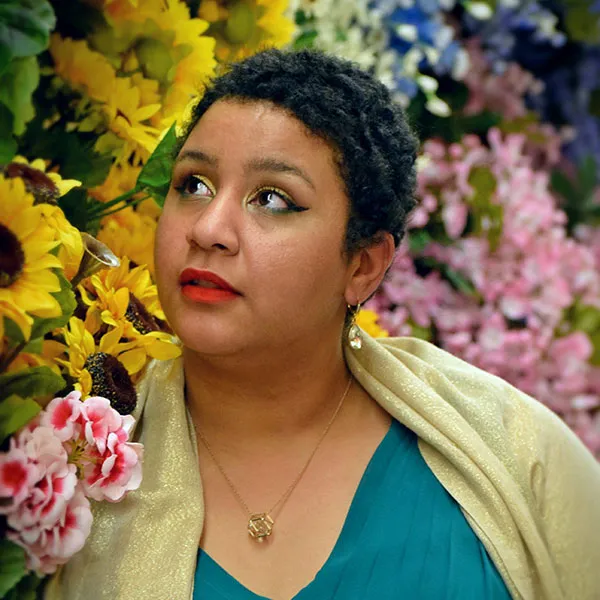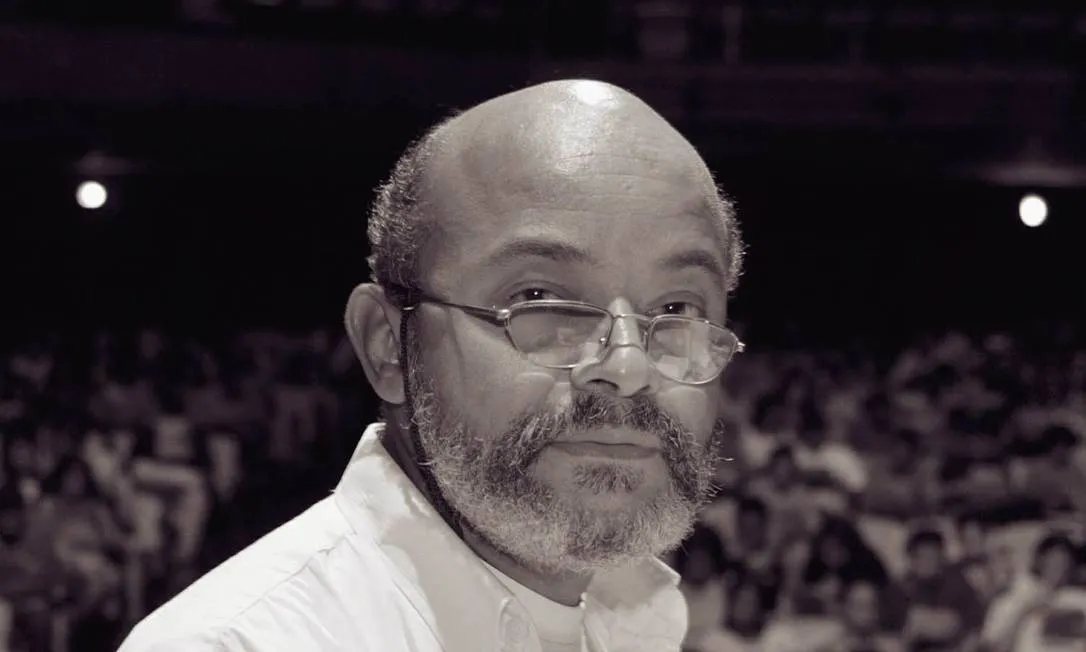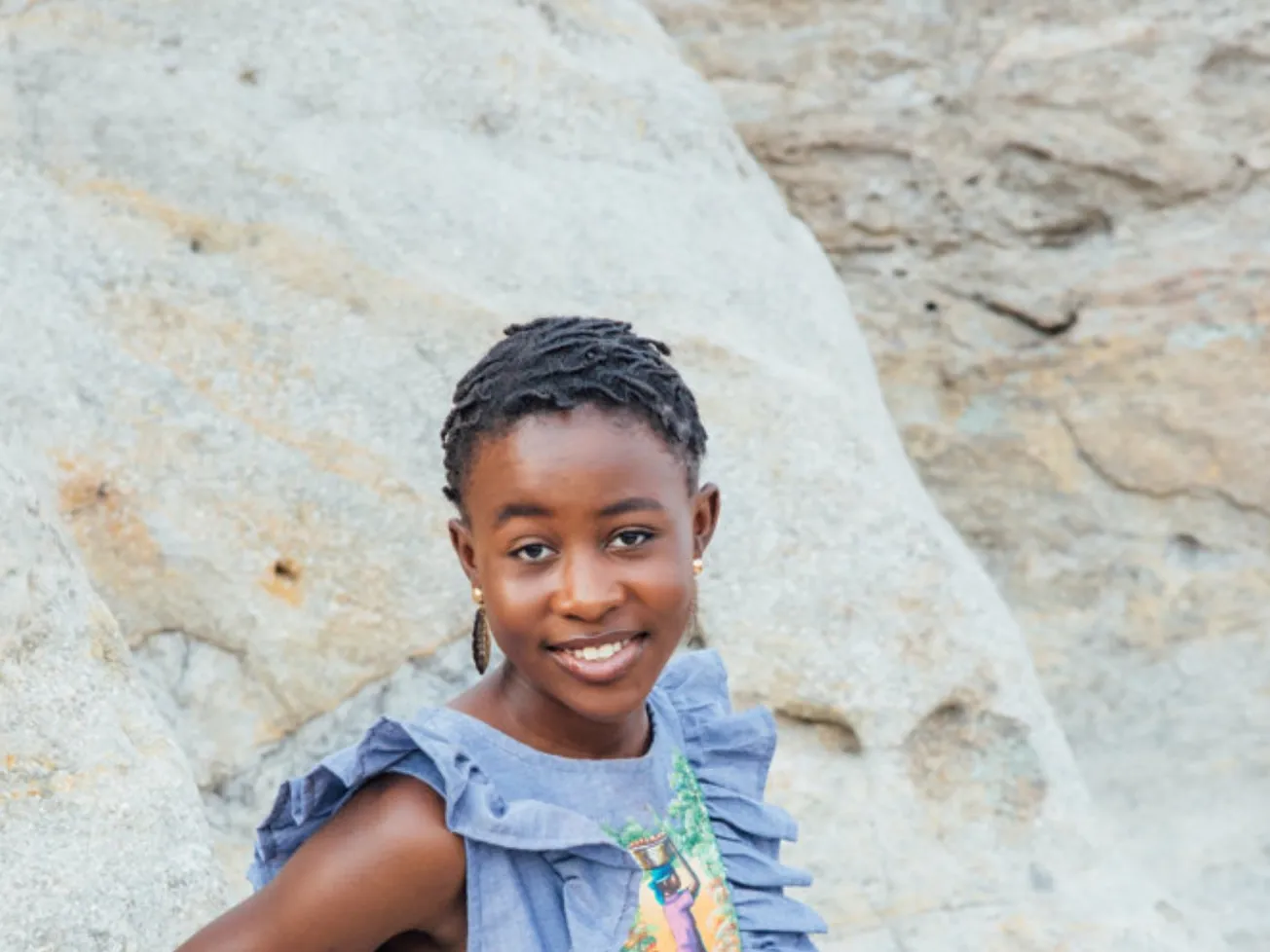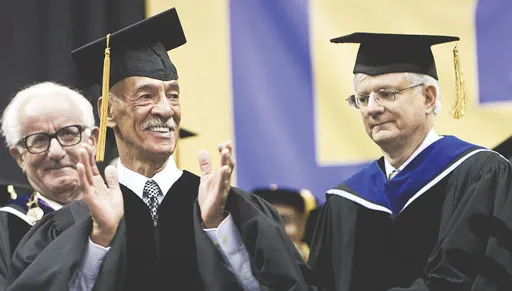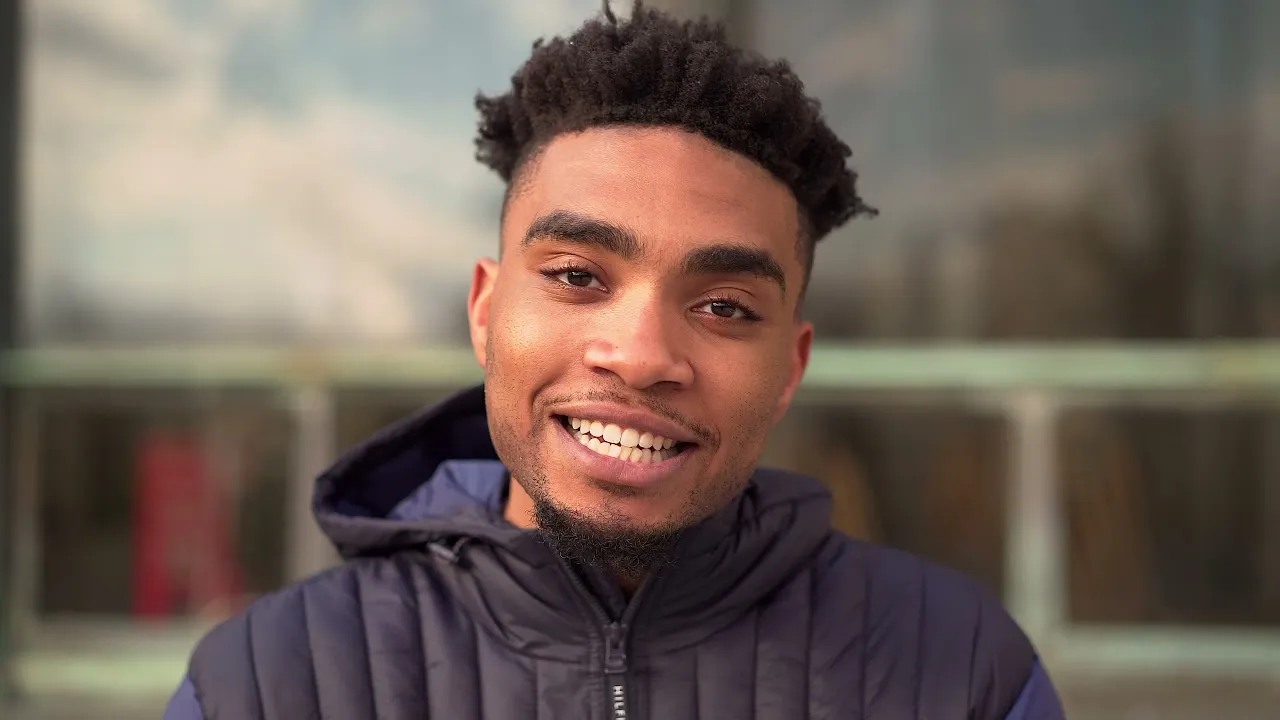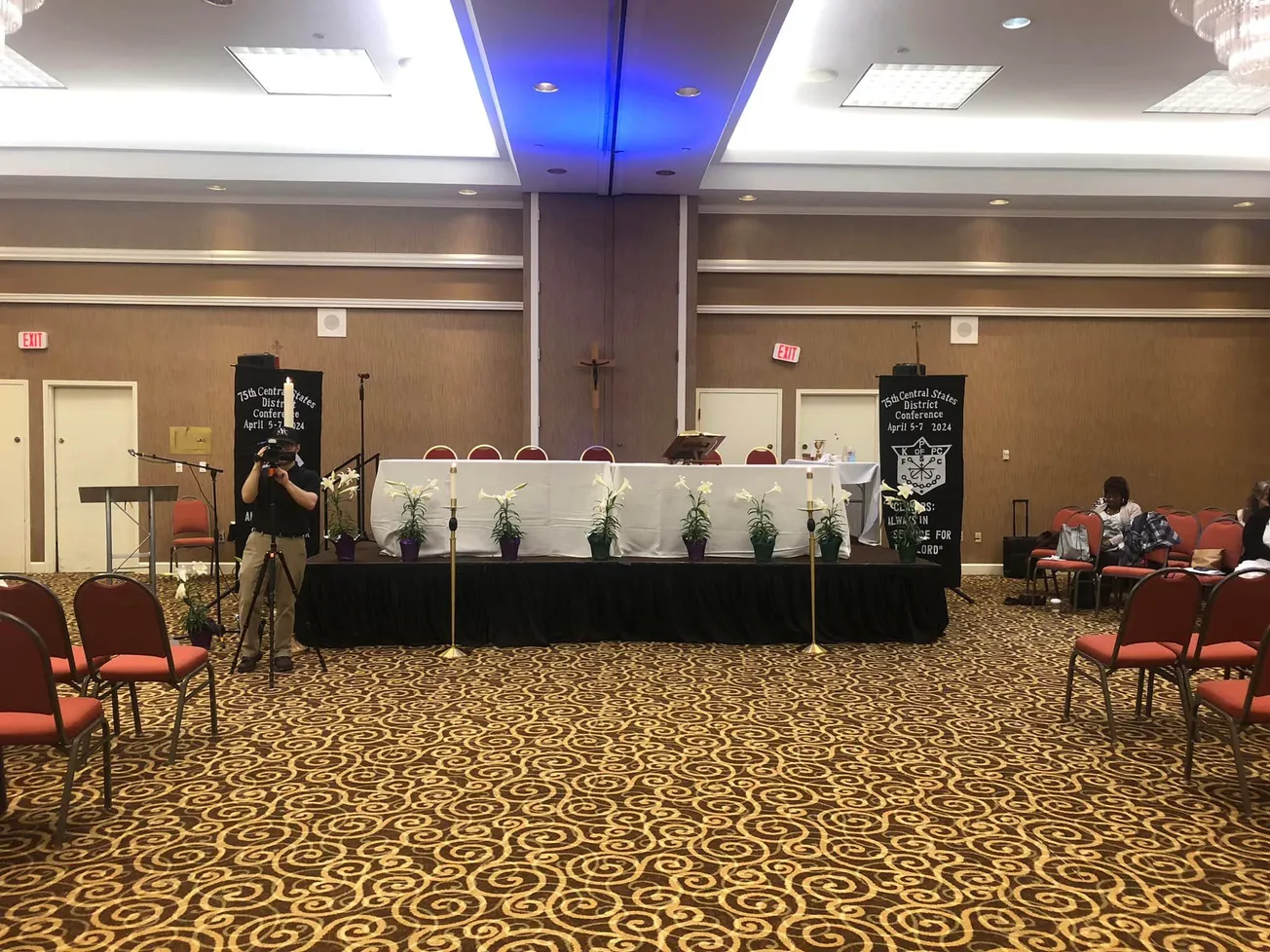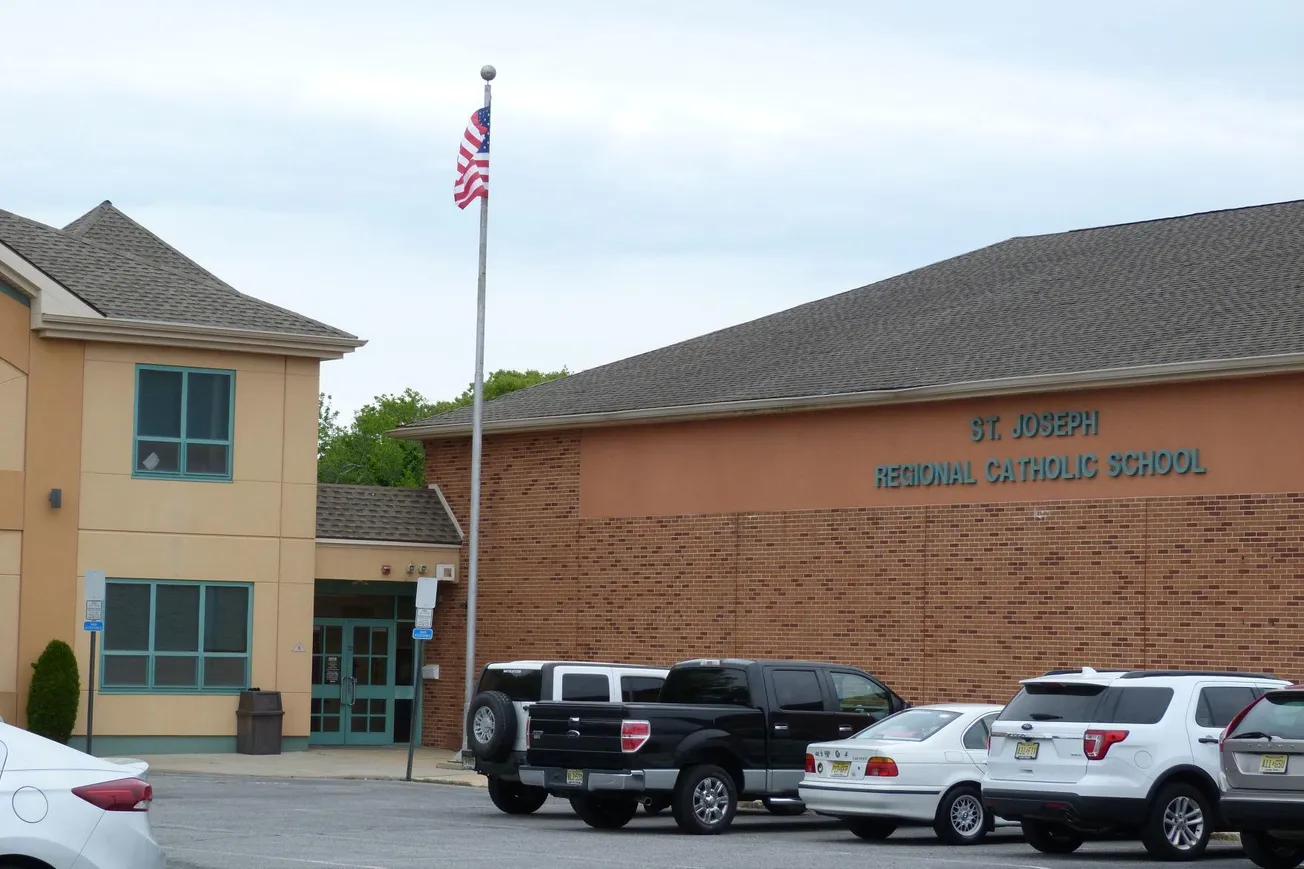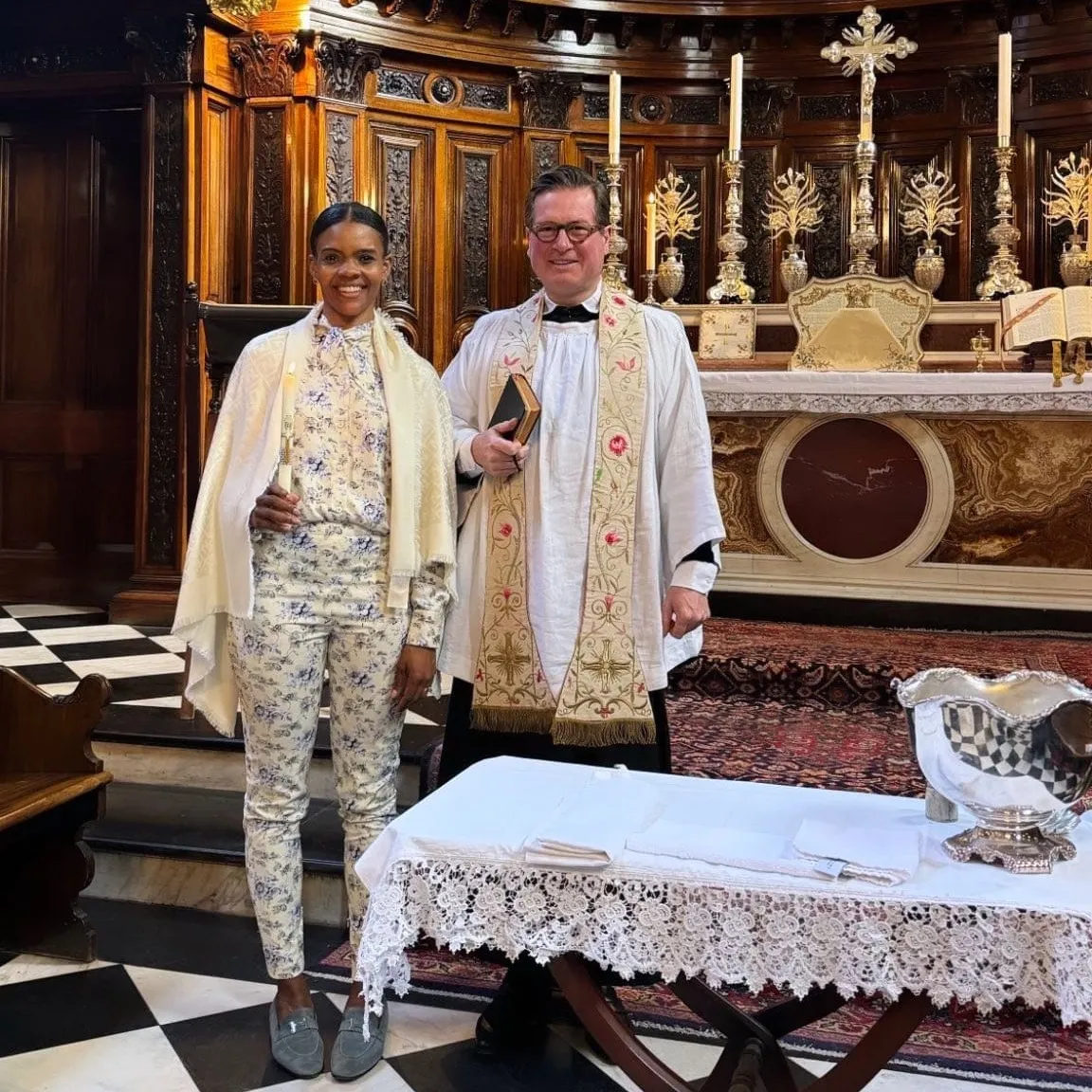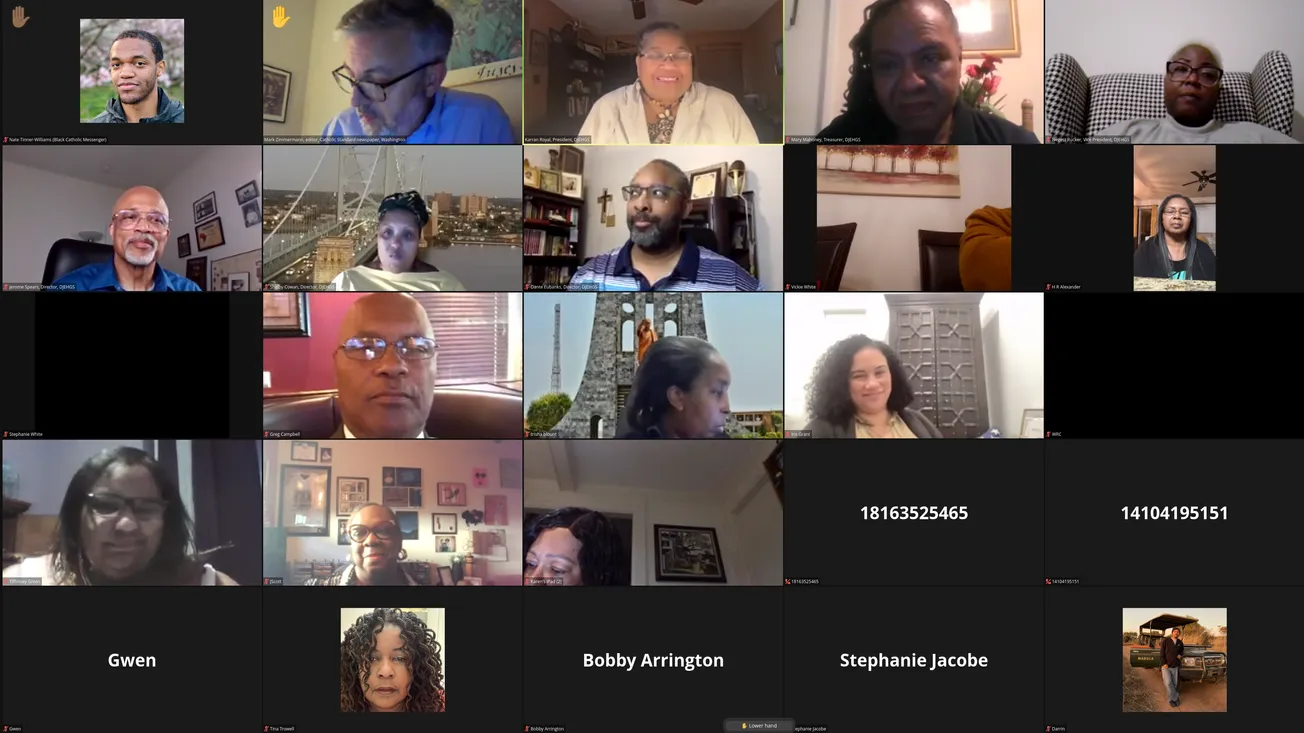Sasha Massey, profiled last Fall in the Advocate, is on a mission to serve.
And serve.
A Black Catholic entrepreneur and professional singer, Massey has taken to YouTube for the past 5 years to spread her gift of song—covering everything from Moses Hogan to Mozart.
The Southern songstress sat down with BCM this month to talk craft, Coronavirus, and Catholicism.
(This interview has been edited for clarity.)
Nate Tinner-Williams: So what's keeping you busy in Lafayette these days?
Sasha Massey: Well, my work increased, as far as where I'm employed. I’m mainly at Saint John Cathedral. Once the restrictions on gatherings were set in place, somehow we were able to get people to observe them—even though some pretty zany things happened in the beginning,
NT: Oh yeah.
SM: There were livestreamed Masses on a daily basis, so what happened was, they realized you know, “We need music. This just isn't the same without music.” So weekday Masses suddenly had the Mass parts being sung instead of just being recited, and there was like actually something to sing about.
But I would have been totally OK with the idea I’ve heard of switching up the Mass parts so that you can expose people to new music, but not necessarily have them sing along (which we're supposed to discourage).
NT: Right, right.
SM: So yeah, eight Masses a week.
NT: And you're singing at every single one?
SM: Yeah. At one point, our days off were different, but basically the organist was like “I have to have at least one day off,” and I'm like “I understand.” And for my weekday Masses, Mondays became “A cappella Mondays” with another musician friend Karen Broussard. So that was fun.
I got to explore more chant Masses, singing more stuff that normally I would make time to sing somewhere else. It turns out the congregation misses so many old songs that are new to me, and they enjoy spirituals as well. The organist has expanded the repertoire to even include some hymns I found that were originally in Spanish. I know he's relieved that we’ve been able to safely do our jobs.
NT: Naturally.
SM: We did lose two people in our choir, though to natural causes. One of them died of a heart attack, but it runs in his family. He was relatively young to die of a heart attack, 50. But one of our oldest and most dedicated members in the choir, Tom Butcher, who owns Butcher Air Conditioning, he passed away.
NT: From COVID?
SM: No, but our dear rector contracted COVID. A few people in the congregation contracted it. A couple of my singer colleagues caught it, but survived and adapted. One lady, a mutual friend, got it and she's got a baby that's barely a year old. But she beat it, so that’s great.
Our rector was out for a month and the younger pastor had to just lead. Like someone just plucked him, threw him in the water, and said “Go! Lead!”
NT: That sounds downright biblical!
SM: I mean, mistakes were made, but you're literally learning on the fly. And nothing inspires action like having no choice. It’s like trying to flee from a giant flaming boulder like in Raiders of the Lost Ark or something. You can only go forward.
NT: Speaking of choice: since you kinda didn't have a choice in singing seven Masses a week, you did have a choice in posting songs to YouTube pretty much every day, How do you manage all that?
SM: At some point I realized I needed to not just do things in a functional way. Because in a lot of ways, the parts of Mass and the sequence of how things occur in Mass become just functional. And there are people that come to Mass every day, and they expect everything to go a certain way every day. Routine and structure is something we cling to. It helps us maintain our sanity. But the music has to match the readings.
I prayed for years and years and tried to put in the work to communicate to God my needs, that I really wanted to work doing something that I loved every day. that I would be in an environment where I was valued. And so I just put in more effort to just study the music better and treat every song like I'm singing it in front of my masterclass in school.
So what happened then was I started recording them, and I realized I was backlogged by like a month. And so, honestly, most of the footage this year is like from around Easter. So at first it really did end up being every day, but being infirmed with bronchitis and everything, I just realized I have to find a different rhythm.
I don't know how long this [daily livestreamed mass] is gonna last. It did grow my channel, it did connect me to people, I got a bit more work, it did help me realize that I wasn't just one tiny person all on their own in the middle of a parish I’m still finding my way in—one that has so many diverse people that speak other languages; hopefully we can unite and collaborate more.
Basically, I wanted this to connect with my parish and, you know, put things in front of them that I would be proud of. That strangers all over the world that happen to have Internet would probably hear. And they may like it, or they may want to throw virtual tomatoes at me. I don’t know.
NT: It's interesting that you mentioned the diversity of your parish. Obviously, most parishes that African Americans are in are White. The statistics say only about a quarter of us are in Black parishes. Why do you think that is? Why do you think most Black people are not in Black parishes?
SM: It could have to do with money, or lack of resources. Eugene Sonnier, of Syrie Funeral home, who handled my grandma’s funeral in 2017 and has become a mentor, explained some Black churches have to do far more fundraising to stay afloat.
Some churches nearby have a small worship attendance and they struggle to make ends meet and still give what little they can. Neighborhoods like mine became more integrated and the mostly White population moved to places outside of the city, to new housing that was developed.
NT: Wow. So I know that's how a lot of that's how a lot of Black parishes came about across the country. I know in the 60s, 70s, and 80s, Black Catholics—their numbers exploded, especially because of the Great Migration. So a lot of those neighborhoods that had a big White parish became neighborhoods with a big Black parish, and a lot of them are that way to this day. But yeah, not all Black people live in a Black neighborhood that has a historic Black parish like that.
Do you think you think more Black people would be in Black parishes if they were more numerous? If they were everywhere?
SM: I mean, that makes sense. Numbers-wise, that makes sense.
NT: The reason I ask is because even though you may not always be singing gospel music at church, obviously you have a Black cultural and musical background, which comes through when you sing on YouTube.
SM: I live close to my church. Wrapped around in one direction the other way—across the tracks, literally—wrapped around that church, is law offices, the whole downtown area, and a whole bunch of student housing. And it's a largely affluent White suburban area.
But two streets the other way and literally down the street from the church, is the Catholic Services Center, homeless shelter, and a place called Smile that helps people pay their bills when they absolutely can't make it (because they're all on fixed incomes anyway).
There's Saint Joseph's Diner, there's a whole outdoor area where people buy old vegetables at a huge discount and there’s other resource sharing. And there's Saint Peter Paul Church that needs repairs and does poboy sales with no school attached to it, and the Holy Family School that has no music program and that’s around the corner.
So the disparity and poverty level is starkly visible. And the school attached to the cathedral is huge and well-loved and they just built this cathedral hall which has pretty good acoustics. I've done two recitals there. We had many familiar faces from the cathedral and a few friends from predominantly Black churches.
Part two of the interview can be found here.
Nate Tinner-Williams is co-founder of Black Catholic Messenger, a priesthood applicant with the Josephites, and a ThM student w/ the Institute for Black Catholic Studies at Xavier University of Louisiana (XULA).


